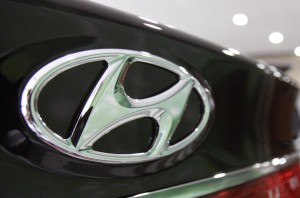Through the years, the Bureau of Customs (BOC) has earned for itself a bad reputation. Many times, it has topped the Social Weather Stations (SWS) surveys either as the most corrupt government agency or the least sincere in fighting corruption.
Indeed, a perusal of broadsheet headlines in the last few years would readily reveal that the agency has been embroiled in many scandals: Rice smuggling, tampered balikbayan boxes, anomalous appointments, favoritism and grease money moving around.
It is no surprise then that the spotlight glares again upon the scandal-ridden agency—this time involving the biggest-ever haul of smuggled shabu from China amid President Duterte’s staunch war on drugs.
The smuggling of this P6.4 billion worth of illegal drugs prompted Congress to launch anew three separate probes. The hearings only highlighted systemic and pervasive corrupt practices pestering the agency, including the fixers, brokers, padrinos and even lowly employees allegedly receiving payouts every Fridays.
Many of our countrymen have expressed doubts on the congressional hearings because the plague in the agency has persisted despite similar investigations in the past. But what may differentiate the hearings now is that no less than Mr. Duterte, who is known for his political will and who holds the “super majority” among lawmakers, has vowed radical reforms in the BOC. Before he was elected to office, Mr. Duterte said: “The Bureau of Customs should be privatized. That is the only way we could dismantle and end the systemic corruption in that agency.”
If there is a meaningful and far-reaching result from these ongoing congressional hearings—which, constitutionally, should be “in aid of legislation”—it must be a law that will abolish the BOC, privatize it or allow it to outsource the administrative aspects of customs operations.
While the power to tax (customs duty is a tax, according to our Supreme Court) is an inherent sovereign power of the state, certain aspects of tax administration can be privatized or outsourced. Sovereign aspects such as determination of tax rates, who and what to tax, tax exemptions, and the like, should constitutionally remain within the government’s sole control.
Administrative functions such as the inspection and certification of cargo and collection of taxes can be privatized or done with the aid of private firms.
In other jurisdictions, outsourcing administrative tax functions is already acceptable. In countries such as Australia, New Zealand, Greece, Sweden and the US, collection and processing of tax payments can be done through private banks.
Historically, the Philippines is no stranger to private firms handling certain aspects of customs operations. In the 1990s, the Philippine government contracted Societe Generale de Surveillance (SGS), a Swiss company touted as the world’s leading inspection, verification, testing and certification company of traded goods, to conduct pre-shipment inspections of goods coming in and out of the country.
The battle to clean up the BOC has been an overlong, drawn out war. Now is the perfect opportunity to win the war.


